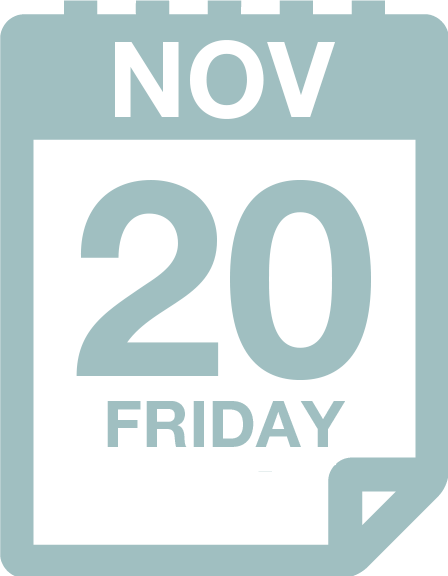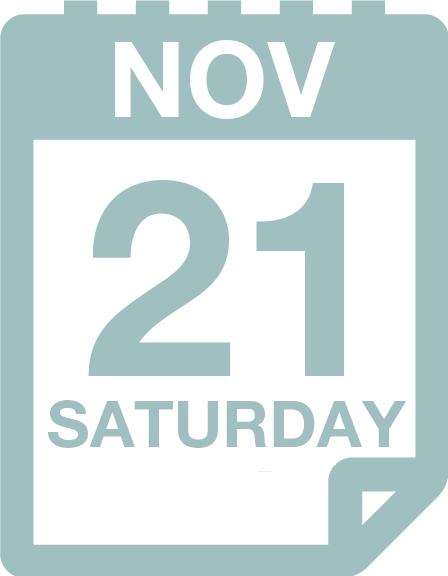Schedule

XIII International Workshop on eHealth in Emerging Economies
| TIME UTC | SPEAKER | COUNTRY | PRESENTATION |
|---|---|---|---|
| 11:00 - 11:30 | GNU Health core team | International | Welcoming session |
| 11:30 - 12:00 | Douglas Demaio | Germany | The BIG Change for openSUSE Leap 15.3 The vision of Leap was to bring sources of SUSE Linux Enterprise (SLE) closer to the community distribution. Community packages built on top of a solid enterprise core changed the landscape and introduced the world to a community/enterprise hybrid. Leap 15.3 looks to take the distribution one step closer. |
| 12:00 - 12:30 | Cristián Maureira-Fredes | Germany | Qt for Python: past, present, and future! Being a C++ based framework, Qt has been getting
binding to other languages since the beginning,
but many of them went unmaintained and unsupported
within the following years. Two years passed, and by the end of 2018,
PySide was announced as an official module for Qt
under the offering name: Qt for Python. |
| 12:30 - 13:00 | Richard Fitton | England | Citizens, health literacy, patient activation and Global digital health records Oliver Crowton, patient Glossop England Patients will be able to access everything in their care records (with a few exceptions) to make joint decision with professional and lay carers and to manage their health and care – including self-care. The future processing of records will be less transfer of data and more the transfer of access rights to the use of data within large data bases. No GP in England has had total been responsibility for the patient, 24 hours a day, 365 days a year for about 50 years. Current practices of confidentiality prevent information from the GP being easily accessible and inhibiting the potential of these records out of GP hours. Patients who can access and share their records can overcome these confidentiality obstacles. |
| 13:00 - 14:00 | Break | ||
| 14:00 - 14:30 | Florian Dold | GNU Taler: A payment system by the GNU Project The GNU Taler project is building libre infrastructure for privacy-friendly payments. In this talk, we will explain the goals and principles behind the system, give an update about the current state of the implementation as well as ongoing technical and regulatory efforts towards operating the system in the Eurozone. |
|
| 14:30 - 15:00 | Isabela Bagueros | USA | Surviving the surveillance pandemic When the COVID-19 pandemic hit most countries around the world, people had to move most of their interactions online, be them working interactions, home schooling, personal interactions or political activism. Many governments looked for technology to trace the spread of the virus in order to fight the pandemic. Contact tracing practices and technologies raised many questions about privacy, particularly: is it possible to trace the virus while respecting people's privacy? Surveillance is also being applied to remote schooling as a way to ensure students aren't cheating on tests. Employers start to use different surveillance technology to monitor their employees while working from home. With the uprising in the U.S. against systemic racism, followed by protests all around the world and now with many protests related to election processes in different countries. The control of the Internet, online censorship as well as surveillance, is being applied against people who are fighting for their rights. Is it possible to survive the surveillance pandemic? How to best protect yourself and your community? |
| 15:00 - 15:30 | Aleix Pol | Germany | Delivering Software like KDE The journey of an idea into a piece of code that ends up running on over thousands of devices isn't trivial. In this presentation I would like to shed some light on how we do it in KDE by showing some tools that can help along the way. The end goal of this talk is to have everyone informed about what's working for KDE nowadays with an emphasis on the mobile aspect of the story. |
| 15:30 - 16:00 | Sébastien Jogdone | Belgium | Using WebAssembly to render medical images WebAssembly is an emerging open standard that allows to run C/C++ code directly within any Web browser. Thanks to WebAssembly, it is possible to share the same codebase if targeting desktop software, Web applications and native mobile apps. This can greatly reduce the development effort associated with a cross-platform software project. WebAssembly is now an official recommendation by W3C, and is endorsed by the major Web browsers, most importantly by Mozilla Firefox. Although often being embraced for the purpose of online gaming, WebAssembly is expected to have a large impact in scientific software. Indeed, this technology can be used to close the gap between low-level, computational code and Web applications. In particular, in the field of medical imaging, the Orthanc project has designed a free, lightweight C++ software library that is called Stone, and whose purpose is to render DICOM images in a fully cross-platform way. The architecture of Stone has been designed to be fully compatible with WebAssembly, while it can also be embedded in more usual frameworks (Qt, SDL...). Stone can be thought of as a single alternative to the well-known Cornerstone (JavaScript) and VTK (C++) libraries. In this talk, I'll give an introduction to WebAssembly and to its free compiler Emscripten. I'll then present the Stone of Orthanc library, and its associated new Web viewer that is entirely built on the top of WebAssembly and Vue.js. The integration of the Stone Web viewer in GNU Health would be as simple as opening an URL published by the Orthanc server. I'll also review other possible applications of WebAssembly related to healthcare, such as making bioclinical models, AI algorithms, or image analysis applications widely available. |
| 16:00 - 16:30 | Dimitris Kardarakos | Greece | Desktop/mobile convergent applications with Kirigami Nowadays, an increasing amount of desktop applications have its mobile counterpart. So, the creation of a mobile version for each desktop application is the way to go, isn't it? There is, however, an alternative approach: desktop/mobile convergent applications. From a development point of view, working on a single application that adapts to the device that it runs on means less code to maintain and release. At the same time, users are being offered an application ecosystem that follows similar UI and UX patterns and, as a result, it is more intuitive and easy to learn. Kirigami, the KDE framework that implements the KDE Human Interface Guidelines, helps the developers create convergent, consistent and easy to use applications. In this talk, the main benefits of desktop/mobile convergence will be discussed and various convergence features of Kirigami -as used in real applications- will be shown. |
| 16:30 - 18:00 | Discussion / Q & A | ||

GHCon 2020
| TIME UTC | SPEAKER | COUNTRY | PRESENTATION |
|---|---|---|---|
| 11:00 – 11:30 | Armand Mpassy | Gabon | GNU Health for IT illiterateCase study: Patient workflow at the outpatient service GNU Health is being successfully implemented in a number of countries in Africa and around the world. We found that computer knowledge and digital literacy among health professionals was still very low. This prevented health workers to use the full functionality of GNU Health. To improve user acceptance and job satisfaction among GNU Health users, we have developed an innovative way to train users without any prior computer knowledge, while introducing them to the basics of computing. |
| 11:30 – 12:00 | Axel Braun | Germany | Hidden Gems - the easy way to GNU Health The talk dicusses options to install and run GNU Health the easy way, and introduces an exciting new option for a high-security, self-contained system |
| 12:00 - 12:30 | Carli Scotta, Mario Puntin | Argentina | Design, development and implementation of a Dentistry module for GNU Health: experience at the Humberto D'Angelo Primary Care Center in Argentina |
| 12:30 - 13:00 | Ricardo Morte Ferrer | Germany | A proposal for the implementation of a Whistleblower Channel in GNU Health Nowadays there is a strong development in order to achieve more transparency and to fight against bribery and corruption in different kinds of organizations. One example is the Directive (EU) 2019/1937 of the European Parliament and of the Council of 23 October 2019 on the protection of persons who report breaches of Union law. Furthermore, as a worldwide step to protection, the International Standard Organization is finishing the last papers of the ISO/DIS 37301 about Compliance management systems and the ISO/DIS 37002 about Whistleblowing management systems. Implementing such a system in GNU Health could be worthy and make our system even more attractive for Health organizations helping them to achieve per default these Compliance requirements. |
| 13:00 - 14:00 | Break | ||
| 14:00 - 14:30 | Ingrid Spessotti, Fiorella De La Lama | Argentina | Outpatient follow-up and home care of patients with suspected or confirmed COVID-19. |
| 14:30 - 15:00 | Denise Vinokur | Argentina | GNU Health in the nutrition, endocrinology and diabetes department of San Martin Hospital |
| 15:00 - 15:30 | Luis Falcón | Spain | MyGNUHealth The GNU Health Personal Health Record (PHR) The development of MyGNUHealth supposes one of the biggest milestones in the history of the GNU Health project. It makes the person and the patient an active actor in the system of health. We will review the main features; the technology behind; the integration with the GNU Health federation; the mobile devices and the benefits it can have in the public health system. |
| 15:30 - 16:00 | Lightning talks | ||
| 16:00 - 17:00 | GNU Health en Español | ||
| 17:00 - 18:00 | Round table • GNU Health embedded and mobile |
||
| 18:00 - 18:30 | GNU Health Social Medicine Awards | ||



